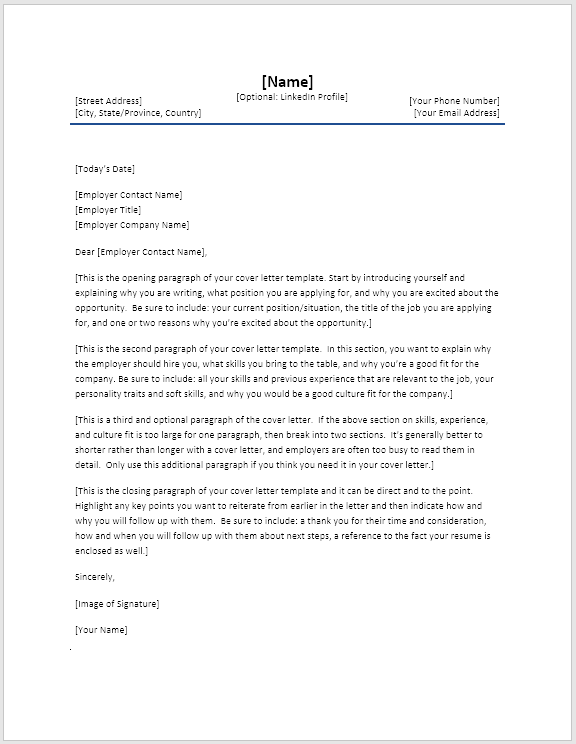- What are Interpersonal Skills?
- Why Interpersonal Skills Matter
- Technical Skills vs Soft Skills
- How to Weave Interpersonal Skills into Your Cover Letter
- List of Interpersonal Skills for Your Resume
- How to Assess Your Own I-Skills
- How to Improve Your Interpersonal Skills
- Video Explanation of Interpersonal Skills
- Additional Resources
Interpersonal Skills
Why interpersonal skills matter and how to improve them
What are Interpersonal Skills?
Interpersonal skills are the skills required to effectively communicate, interact, and work with individuals and groups. Those with good interpersonal skills are strong verbal and non-verbal communicators and are often considered to be “good with people”. Whether they’re used in your career or personal life, these skills are important for success.

Why Interpersonal Skills Matter
Most of what we do in life requires interaction with other people. In order to be successful in your career or foster meaningful friendships, it’s critical to be good at getting along with others. A key aspect of enhancing interpersonal skills is recognizing how various communication styles impact individual and team interactions, ultimately influencing outcomes.
While interpersonal skills are often considered to be something that comes naturally, whether you’re blessed with them or not, the truth is that they can be learned. At CFI, our focus is on helping you advance your career. With that objective in mind, we’ve designed this guide to help you:
- Be aware of the importance of interpersonal skills
- Highlight your skills in a way that helps you get a job and advance your career
- Assess your interpersonal abilities and develop a plan to improve them
Technical Skills vs Soft Skills
When preparing a job application, the natural tendency is to focus on technical skills. It’s only natural, as most job descriptions focus on specific requirements such as accounting, finance, Excel, financial modeling, and related skills.
However, most hiring managers actually make their decision based on soft skills, even though they talk about all the technical skills required. According to a recent LinkedIn survey of 291 hiring managers, interpersonal skills are both more important and also harder to find. 59% of managers reported they have trouble finding people with the right soft skills.
The table below summarizes some key differences between technical and soft skills.
| Technical Skills | Interpersonal Skills |
|---|---|
| IQ (Intelligence Quotient) | EQ (Emotional Quotient) |
| Following Rules | Changing Rules |
| Learned in School | Learned in Life |
| Easily Testable | Harder to Test |
| Can be Learned | Can be Learned |
| Heavy Focus in Careers | Equally Important, Less Focus |
How to Weave Interpersonal Skills into Your Cover Letter
Your cover letter is a better place than your resume for focusing on soft skills. The reason is that interpersonal skills are best demonstrated with stories and examples, which fit more naturally into a cover letter.
Here are some tips for including these skills in your cover letter:
- Identify three or four traits from the list provided below that you want to focus on
- Recall a story or example from the past that demonstrates how you possess those traits
- Connect the examples you use to the job you’re applying for

It’s literally as easy as that! If you follow the three steps above, then you’ll be able to naturally and elegantly incorporate soft skills into your cover letter and increase your chances of getting hired.
List of Interpersonal Skills for Your Resume
If you’re looking for ideas and examples, here is a list of the most common interpersonal skills:
- Awareness (of yourself and others)
- Caring about other people
- Collaborating and working well together with others
- Comforting people when they need it
- Clear communication skills
- Conflict management and resolution skills
- Constructive feedback (ways people can improve)
- Diplomacy (handling affairs without hostility)
- Empathy for others
- Encouraging and inspiring people to do their best
- Flexibility in thinking and operating style
- Humor and lightheartedness
- Inspiring and motivating others to active greatness
- Listening well
- Mentoring and coaching team members
- Networking and building relationships
- Nonverbal cues and body language
- Patience when dealing with others
- Public speaking and presentation skills
- Respect for everyone, no matter who they are
- Sensitivity toward the preferences and wishes of others
- Socializing skills
- Being good at team building and at building trust
- Tolerance and respect for team members
How to Assess Your Own I-Skills
It all starts with self-awareness. Simply by reading this article, you’re already going to be more aware of your interpersonal skills going forward.
From now on, whenever you’re in a group setting or a situation that involves discussion, emotion, decisions, and human interaction, pay close attention to your behavior and also to how others perceive or react to your behavior.
Repeat this process for a while until you have a solid understanding of how you behave in interpersonal settings.

How to Improve Your Interpersonal Skills
Once you know where you stand, it’s time to start planning out how to improve your interpersonal skills. Some of the best ways to improve are:
- Monitor your body language and ensure you’re not doing things that make people think you’re disengaged or aggressive (crossing your arms, looking around, avoiding eye contact, etc.)
- Practice active listening with family, friends, and coworkers – repeat what they’ve said back to them to ensure you’re accurately listening
- Try being friendly and chatty with colleagues
- Practice leading a meeting or presentation
- Be enthusiastic and engaged when interacting with people
- Project an image of being confident and approachable
Video Explanation of Interpersonal Skills
Watch this short video to quickly understand the main concepts covered in this guide, including what interpersonal skills are, why they matter, a comparison between technical and soft skills, and how to incorporate interpersonal skills into your cover letter.
Additional Resources
CFI now offers the Business Essentials Bundle with courses on Microsoft Excel, Word, and PowerPoint, business communication, data visualization, and an understanding of corporate strategy. To keep learning, we suggest these resources: